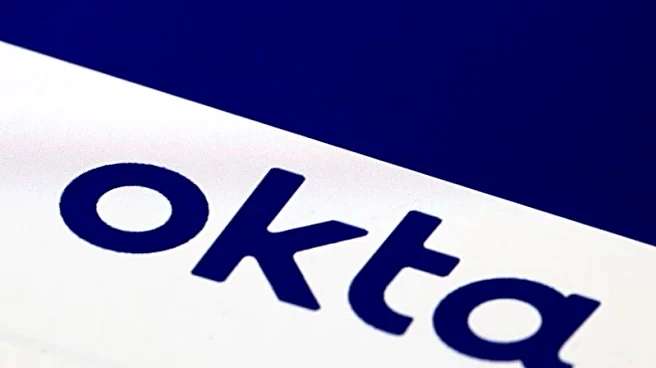By Jaspreet Singh
(Reuters) -Cybersecurity company Okta raised annual revenue and profit forecasts on Tuesday, betting on growing demand for its identity verification tools as enterprises strengthen defenses
against artificial intelligence-powered attacks.
Shares of the San Francisco, California-based company rose nearly 7% in extended trading.
Hackers often exploit client identities to steal critical business data, triggering the demand for tools from firms such as Okta that simplify security deployments, support compliance needs and enhance user experience.
"Overall, security and securing identity remain a budget imperative for companies. With the increase of threat actor activity ... companies are continuing to invest in securing identity as a core requirement for their businesses," Okta Chief Operating Officer Eric Kelleher told Reuters.
In the second quarter, Kelleher added, "Five of our top ten deals were in the public sector. Our largest deal for the quarter was a group within the Department of Defense."
Okta automates user access to applications and resources through products such as single sign-on (SSO) and uses AI to monitor and respond to risks in real time.
The company raised its fiscal 2026 revenue forecast to a range of $2.88 billion to $2.89 billion, up from its prior expectations of $2.85 billion to $2.86 billion.
Okta also lifted its annual adjusted profit per share forecast to $3.33 to $3.38, compared with earlier projections of $3.23 to $3.28.
For the third quarter, the company expects revenue between $728 million and $730 million, above analysts' average estimate of $722.9 million, according to data compiled by LSEG.
The company's forecast for quarterly adjusted earnings per share of 74 cents to 75 cents aligned with analysts' expectations of 75 cents.
In the second quarter ended July 31, Okta's revenue rose 13% to $728 million beating estimates of $711.8 million.
The company's quarterly adjusted EPS of 91 cents also exceeded estimates of 84 cents.
(Reporting by Jaspreet Singh in Bengaluru; Editing by Mohammed Safi Shamsi)










